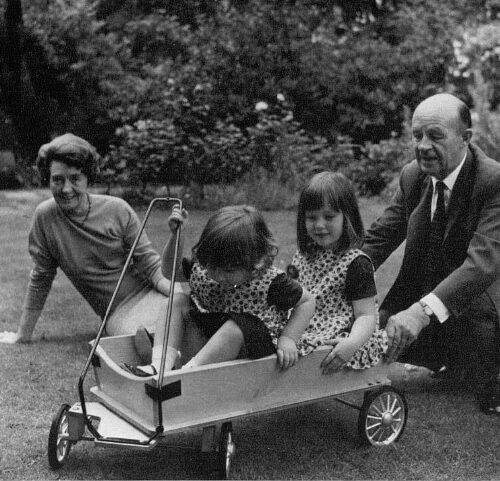

They weren’t just trying to sell something to parents, they were helping them to understand how to play with and observe their children.
Alan Powers on Marjorie and Paul Abbatt in Abbatt Toys: Modern Toys for Modern Children (2020)
Marjorie Abbatt was a businessperson and promoter of toy design, who helped to pioneer an understanding of the importance of play. Born Nora Marjorie Cobb, she was a member (along with her parents) of the West London Ethical Society – one of the founding groups of the Union of Ethical Societies, now Humanists UK. Abbatt and her husband Paul were influential advocates of the theory that children learn by doing. Through their research in the 1930s and collaborative work with European educationalists and artists, they opened not a kindergarten as planned, but a business making and selling innovative toys. Abbatt was a founder member of the International Council for Children’s Play, of which she was later President, and a lifelong advocate of the rights of the child.
Paul and Marjorie Abbatt were part of that pioneering generation that changed attitudes to play. They designed toys to stimulate the imagination as well as physical skills. Self-learning hand in hand with fun!
Margaret Howell
Nora Marjorie Cobb was born on 18 March 1899 at 12 Lovelace Gardens, Surbiton to Edward Rhodes Cobb, a dealer in furs, and Marian Murray Cobb. By 1911, Nora’s family with two more children occupied a large house in Long Ditton called Cock Crow Hill, with five servants including a governess. Nora’s wealthy father and uncle were directors of a successful fur brokerage company in the City: Anning, Chadwick and Kiver. Nora’s cousin John Cobb was a successful racing driver who broke land speed records but was later killed trying to break the world water speed record on Loch Ness in 1952. Her great aunt, Elizabeth Cobb, was a secularist and an active member of the Rationalist Press Association, as well as of the West London Ethical Society. Suggesting a family background of humanist ideals and an eye on education, in a 1912 letter to The Literary Guide (now the New Humanist), Nora’s great aunt Elizabeth wrote:
We want to clear away all lifeless formulae for the coming generation, but we want also to make the young aspirant realise that Freethought proposes to regulate man’s conduct in life by greater insight and wider knowledge of nature—above all, of human nature. It is indeed at well-balanced conduct, at intelligent activity in the present— the only known— world, that the Freethinker aims.
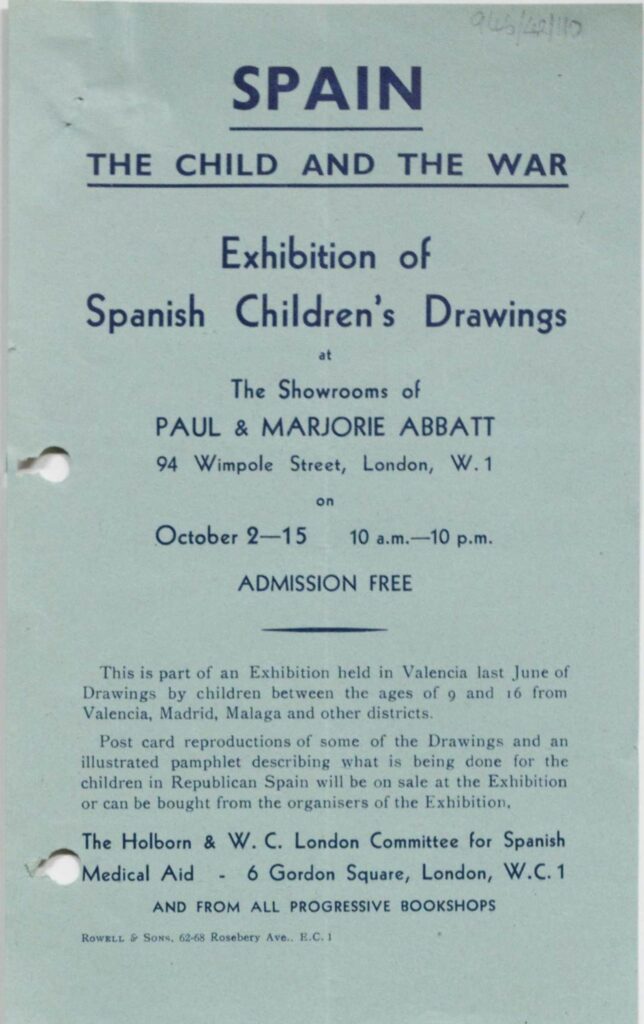
Nora went to Roedean School in Brighton and then Somerville College, Oxford. King’s College London archives show she was an Evening Student there with her mother in 1928. During the years around this time, along with both parents, Nora appears on the membership lists of the West London Ethical Society (known then as the Ethical Church), whose committee Edward Rhodes Cobb also served on. This was an early indicator of the desire for practical goodness which would underpin her educational philosophy. Nora began a postgraduate degree in psychoanalysis at University College London, which she did not complete after meeting and marrying Cyril (Paul) Abbatt in 1930.
Nora’s husband Paul Abbatt had a Quaker upbringing and had been a Conscientious Objector at the outbreak of war in 1914. He worked as a Volunteer Orderly overseas in the British Red Cross Ambulance Service 1918-19, and after the war trained as a teacher. Their mutual interest in child development and innovative educational methods took them to Europe, meeting practitioners and gathering the ideas which led to the start of their toy making business. Paul’s pacifism may have influenced their work in emphasising the importance of play for children affected by war. The Abbatts’ toys and shop in London’s Wimpole Street combined developmental theory with fun and modern design. From the time their business was registered in 1932, they were known as Paul and Marjorie Abbatt.
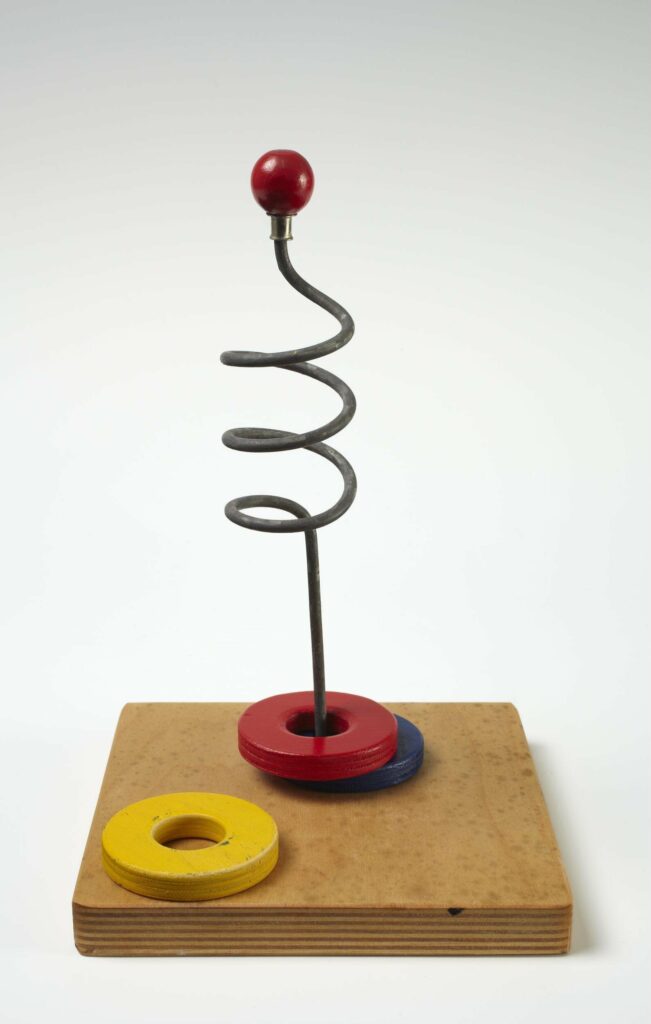
In 1951, the Abbatts founded Children’s Play Activities Ltd. (CPA Ltd.), a research organisation with the stated aims of extending ‘the understanding of play as an element in mental and social education; to promote the design of good toys; to encourage safe and adequate provision for children’s play’. The Abbatts believed wholly in the vital role of play in the wellbeing and development of children. As a 1968 advert suggested:
Abbatt Toys help children to grow up happily: to become deft, agile, strong, bright, thoughtful and friendly. That’s why they’re such fun.
In 1961, the International Play Association was formed to protect and advance the role of play in children’s lives. The Association’s declaration in 1977 echoed the core values of the Abbatts’ research and practice:
IPA’s purpose is to protect, preserve and promote the child’s right to play as a fundamental human right.
When Paul Abbatt died in 1971, an obituary in The Times noted that for those who had known the couple behind Abbatt Toys it was difficult ‘to think of them as anything but inseparable partners.’ He was described as ‘one of the practical revolutionaries’ who had helped to bring about a sea change in attitudes towards play, with the couple’s influence clear to see in the shops country-wide now taking toys seriously.
Marjorie (Nora) Abbatt lived another two decades, remaining actively interested in the schemes she had long supported. She died at her home in Oxford on 10 November 1991, aged 92.
The Abbatts’ work promoting the value of play in a child’s development was key to later policies safeguarding a child’s right to play as part of their education and freedom of expression. The UN Convention on the Rights of the Child adopted in 1989 declared: ‘Play is a means of learning to live not a mere passing of time’. From a freethinking family with an active role in the early Ethical movement, Marjorie Abbatt is part of a rich tradition of humanists in education, who saw the future in the flourishing of the child.
International Play Association (IPA World)
John Cobb | Motorsport Memorial
Cyril Paul Abbatt | Men Who Said No
Marjorie Abbatt | Oxford Dictionary of National Biography
By Liz Goodacre
Main image: Paul and Marjorie Abbatt in ‘The Quiet Revolution’, Tatler, 4 August 1965
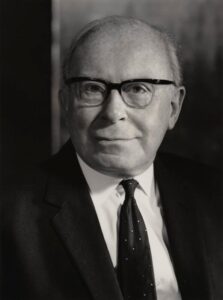
Elected to Parliament in 1949… and here I am! Where else could I be? The pages of the New Humanist […]
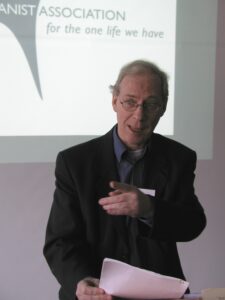
Humanism is a way to live, to give meaning to life and to find an understanding of our place in […]

He was the people’s First Minister, and this is a people’s ceremony. He wouldn’t want heavy mourning. This is a […]
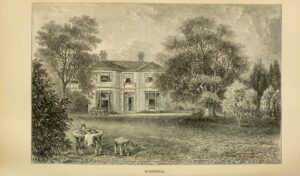
Living in a house beautifully situated on the outskirts of Coventry, they used to spend their lives in philosophical speculations, […]